Boris Johnson: New Brexit deal with EU won't be a cinch
- Published
- comments
Boris Johnson: "This is not going to be easy."
Boris Johnson has said it will not be "a cinch" to persuade the EU to change its Brexit deal with the UK.
Speaking in Devon, the prime minister said the government was "making progress", but would "have to prepare to come out without an agreement".
Mr Johnson wants to renegotiate the backstop - which aims to prevent a hard border on the island of Ireland after Brexit - but the EU has ruled this out.
The EU's chief Brexit negotiator said it will analyse "realistic" proposals.
Mr Johnson insists the backstop - part of the withdrawal agreement reached by his predecessor Theresa May and the EU, but not ratified by Parliament - must be ditched if a new deal with Brussels is to be reached before then.
On Wednesday, German Chancellor Angela Merkel said the onus was on the UK to find a workable alternative plan.
During a visit to Torbay Hospital, Mr Johnson, who held talks in Berlin and Paris earlier this week, said: "It was interesting that there a was a lot of new mood music... from our friends and partners."
He added: "They can see that we want a deal. They can see the problems with the backstop."
But the prime minister also said: "This is not going to be a cinch. This is not going to be easy. We will have to work very hard to get this done...
"I'm afraid we will have to prepare to come out without an agreement. We can do that. We are very confident."
Michel Barnier said in a tweet, external that the withdrawal agreement was "the best deal possible, based on UK red lines".
He added: "We are ready to analyse UK proposals that are realistic, operational & compatible with our principles. EU wants an orderly withdrawal but is ready for any outcome."
The message followed a meeting on Friday in The Hague with the Dutch Prime Minister Mark Rutte.
If implemented, the backstop would see Northern Ireland staying aligned to some of the EU's single market rules, if the UK and the EU do not agree a trade deal after Brexit.
It would also see the UK stay in a single customs territory with the EU, and align with current and future EU rules on competition and state aid.
These arrangements would apply until both the EU and UK agreed they were no longer necessary.
Mr Johnson argues that the backstop could leave the UK tied to the EU indefinitely, contrary to the result of the 2016 referendum, in which 52% of voters opted to leave.
But the EU has repeatedly said the withdrawal deal negotiated by Mrs May, including the backstop, cannot be renegotiated.
Confused by Brexit jargon? Reality Check unpacks the basics.
Speaking as he met Mr Johnson on Wednesday in Paris, French President Emmanuel Macron said he was "very confident" the UK and EU would be able to find a solution within 30 days - a timetable suggested by Mrs Merkel - "if there is a good will on both sides".
But, were any new agreement reached, it would not be "very different from the existing one", he added, given the timescale.
Labour leader Jeremy Corbyn is meeting the Liberal Democrats, SNP, Change UK, Plaid Cymru and the Green Party next week to discuss ways of avoiding a no-deal Brexit.
He has proposed that MPs should help him defeat the government in a no-confidence motion and install him as a caretaker prime minister.
If he wins the vote, he plans to delay Brexit, call a snap election and campaign for another referendum.
While on a visit to Swansea on Friday, Mr Corbyn said: "We'll be discussing all the options. We will obviously discuss a legislation option [to prevent a no-deal Brexit] as well as a motion of no confidence.
"They're not mutually exclusive things to do. They are both possibilities and both things we'll be discussing."
On Saturday, Mr Johnson will attend the G7 summit in Biarritz, France, alongside other leaders including US President Donald Trump.
- Published22 August 2019
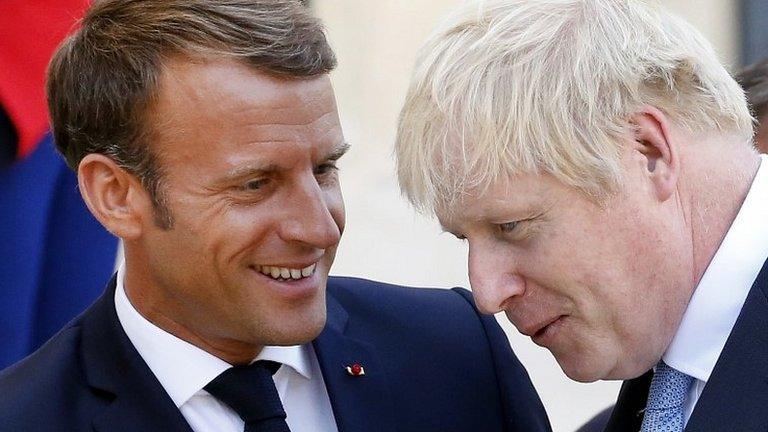
- Published21 August 2019
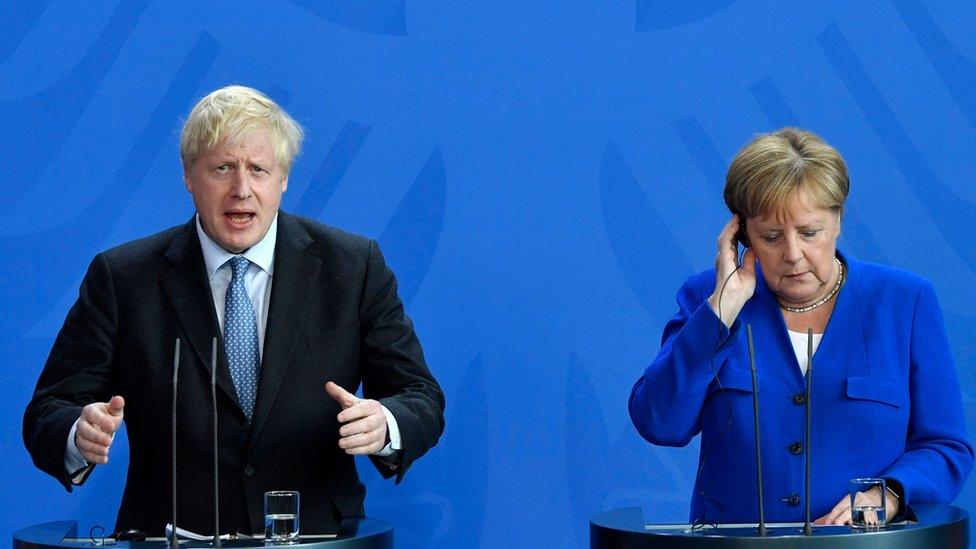
- Published30 July 2019

- Published13 December 2020
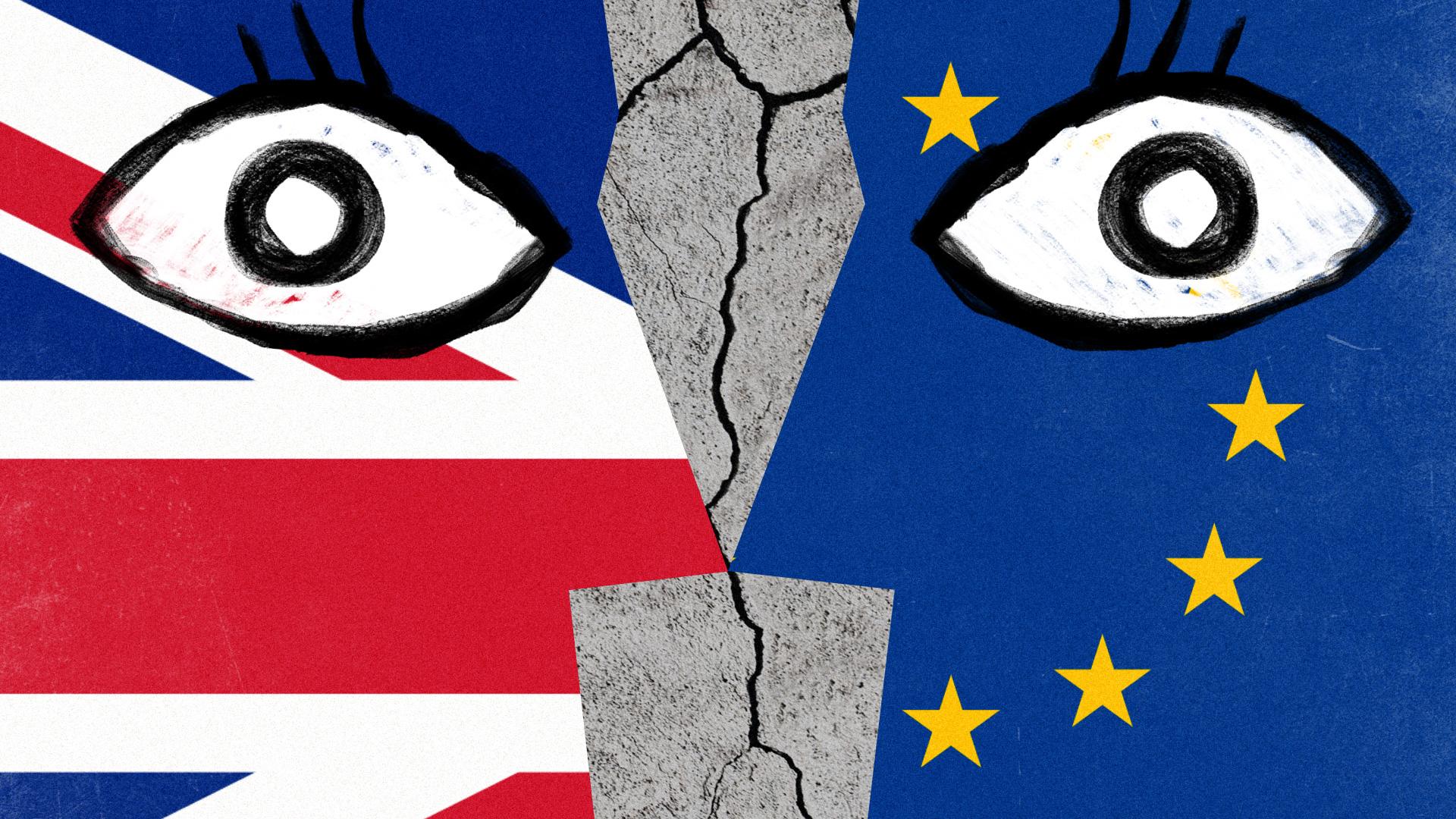
- Published21 August 2019
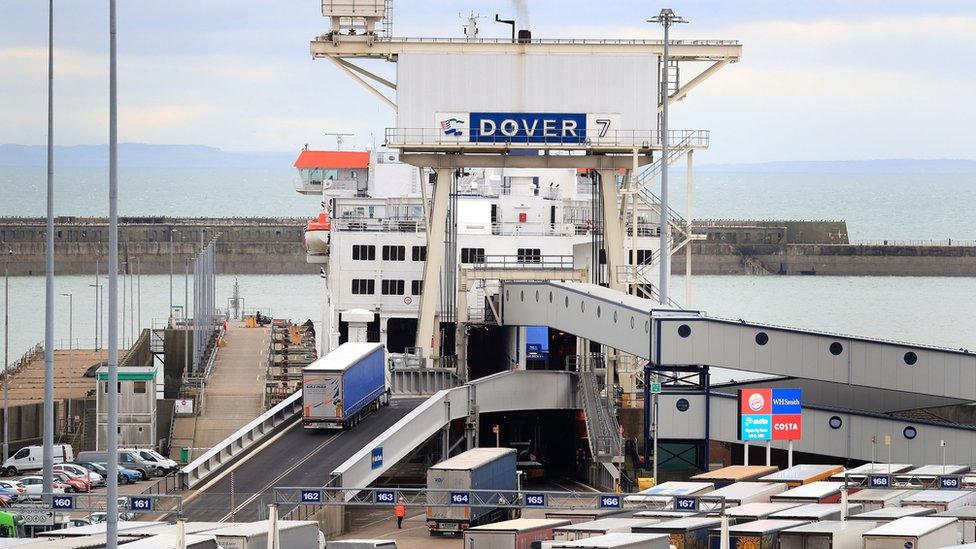
- Published20 August 2019
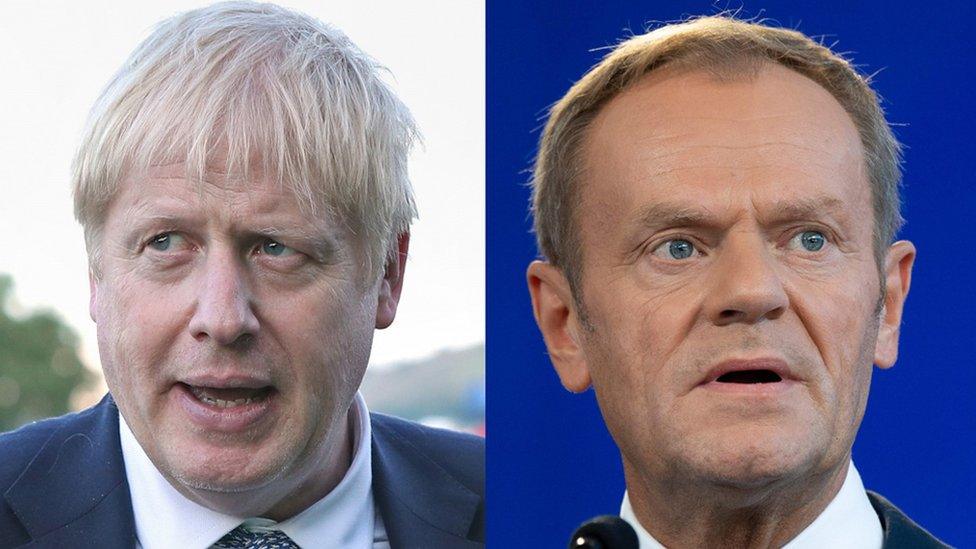
- Published20 August 2019
